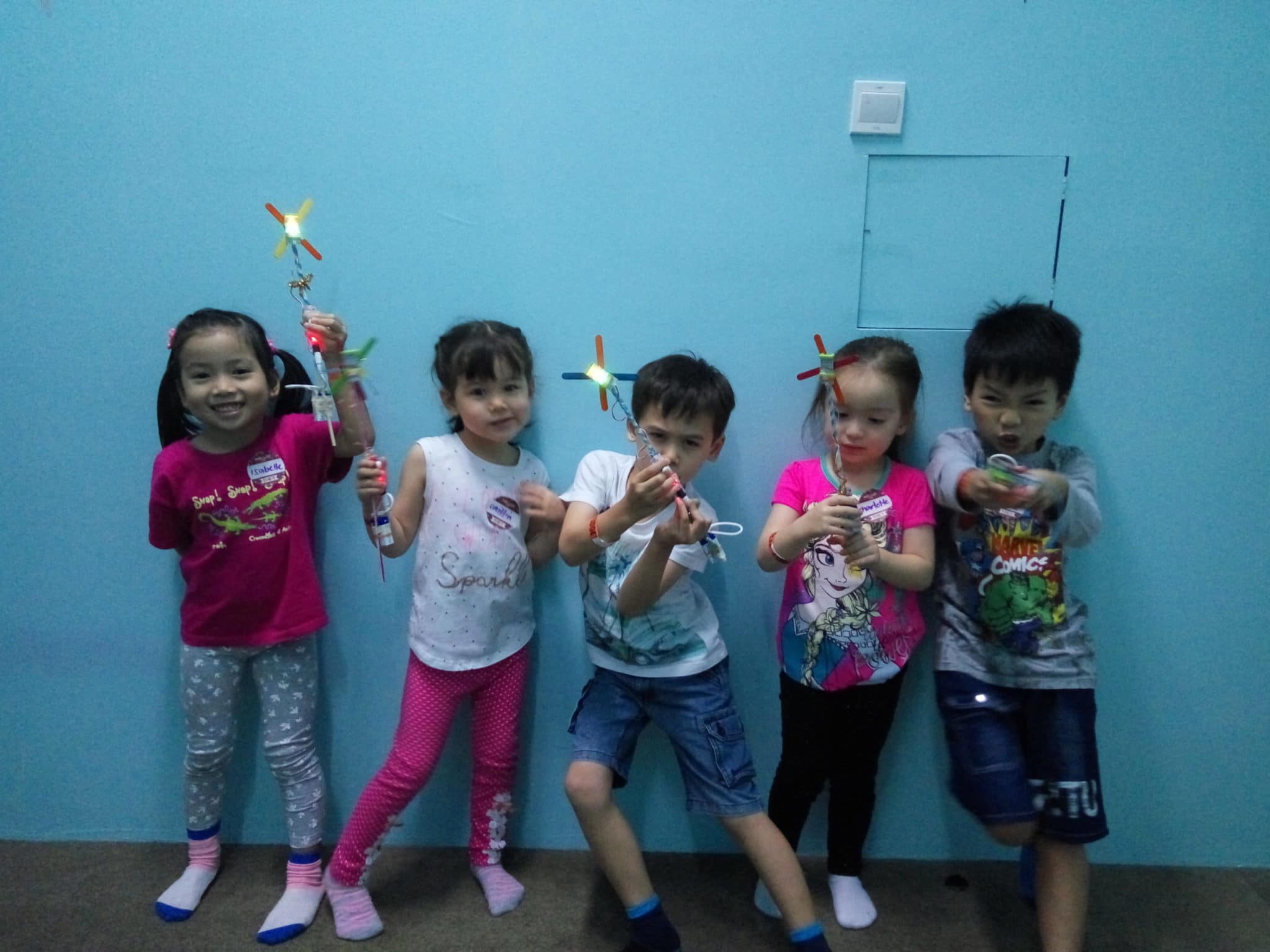STEM Learning In Early Childhood Education
February 20, 2017

Top of the stuff-to-read pile this Sunday morning is ‘STEM Starts Early: Grounding Science, Technology, Engineering, and Math Education in Early Childhood’, a report on STEM learning in early childhood education. Last December Saturday Kids ran our first holiday camp for pre-schoolers, and last month we started running weekly Beebot coding classes at a Modern Montessori pre-school. The STEM Starts Early report addresses several issues we have observed through these workshops and courses and provides recommendations on ways to fully integrate STEM learning into early childhood education. The following are some of the findings and recommendations in the report which corroborate with our own observations.
Children can and should engage in STEM learning, even in the earliest years of life
Many parents (and some early childhood educators) are skeptical of preschoolers’ ability to learn STEM concepts, but in Saturday Kids’ classrooms we see five year olds programming their Bee Bot and inventing light up magic wands with no difficulty at all. The STEM Starts Early report goes into some level of detail about how each of the four branches of STEM affects early childhood learning. I’ve highlighted some of the key findings below:
- Studies show math to be integral to how children learn to learn. Early math is about reasoning and discovery. With guidance from a teacher, preschoolers can start solving problems using mathematical reasoning, build STEM vocabularies, and acquire the knowledge necessary for deeper understanding of STEM topics later.
- In 2014, the National Science Teachers Association (NSTA) summarised several national reports on early science learning this way: “young children have the capacity for conceptual learning and the ability to use the skills of reasoning and inquiry as they investigate how the world works.” There is strong correlation between early exposure to science and later science achievement.
- Early technology is widely misunderstood as using digital or electronic technology. The focus should be on helping children gain technology literacy or teaching them that technology is used to expand our knowledge beyond what our senses can tell us, and to reflect on and share what we find out.
- Early engineering should be part of preschool learning because children are natural engineers, wanting to build things and design solutions, and this type of play can have beneficial effects in the long-term.
Support parent confidence and efficacy as their children’s first and most important STEM guides
Many parents experience anxiety about STEM topics and believe that STEM is only for older children, boys, and certain “types of kids,” attitudes and beliefs that are often transferred to their children. Yet parents have an earlier and more sustained presence in their children’s lives than teachers and consequently have an enormous opportunity to help encourage, support, and normalise early STEM learning. Parents need to be pointed to resources that demystify early STEM education and provide examples of ways for parents to engage in STEM-related activities with young children. At Saturday Kids parents are invited to a presentation by their kids at the end of each course. We have observed a consistent pattern of parents being surprised by what their preschool children can come up with. As educators we need to help parents develop their child’s ability to discover, learn, question and invent.
Support teachers by improving training and institutional support for teaching early STEM
Teachers do play a critical role in the development of STEM engagement for young learners. Teachers who are confident and enthusiastic about STEM topics, and who engage their students in developmentally tailored STEM activities, pass that excitement to their students. Many early childhood educators exhibit an aversion to technology, have a phobia for STEM subjects, and prefer to leave it to the ‘experts’ to get their students started on early STEM learning. Teachers should be trained to think of STEM as mutually inclusive of their other teaching domains and encouraged to weave STEM seamlessly into their existing curricula and play times.